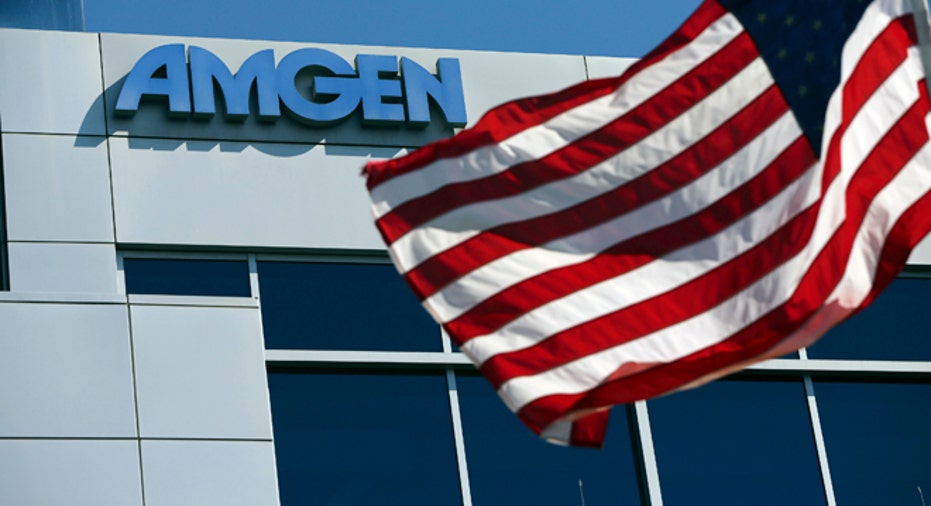Amgen to Help Develop Novartis's Pipeline of Alzheimer's Drugs

Novartis AG will share the risks and rewards as Amgen Inc. will help develop its pipeline of experimental Alzheimer's disease drugs, in a move that is becoming increasingly commonplace among drug makers eager to address the difficult-to-treat condition.
The Swiss pharmaceutical giant said Amgen would pay an upfront fee, followed by milestone payments, for the right to co-develop Novartis's Alzheimer's pipeline. It said Amgen also would pay the majority of research-and-development costs for the program "for an agreed-upon period," after which the pair would split costs and profit equally. Novartis declined to provide specific figures.
In a similar deal last year between AstraZeneca PLC and Eli Lilly & Co., the U.S. company agreed to pay up to $500 million in milestone payments to co-develop an Alzheimer's drug in Astra's pipeline. Japan's Eisai Co. last year also struck a deal with Biogen Idec to share the R&D costs of two midstage Alzheimer's drugs in its pipeline.
All these deals center on so-called BACE inhibitors, a hot new class of drugs the industry hopes could prevent the onset of Alzheimer's by preventing the buildup of a protein known as amyloid in the brain, thought to be the main cause of the degenerative neurological disease.
Vas Narasimhan, global head of development at Novartis Pharmaceuticals, said the company's own BACE inhibitor, called CNP520, formed the "basis of the deal" with Amgen. The Swiss company hasn't yet published any clinical data on the drug, which is in early-stage testing in humans.
The deal "allows us to share risk on the Alzheimer's program," Dr. Narasimhan said. "While there's a tremendous unmet need�clinical trials are long, endpoints are still unknown and mechanisms underlying the disease are still something we're all trying to work out."
Novartis has one other Alzheimer's drug in clinical development, and both companies also have early-stage BACE inhibitors that haven't yet been tested in humans.
BACE inhibitors are the latest glimmer of hope in a field dogged by failures, but they too could stumble in later-stage development. Eli Lilly scrapped a BACE inhibitor, LY2886721, in 2013 over concerns that the drug could affect liver function. Research released by the trade group Pharmaceutical Research & Manufacturers of America in 2012 showed there had been 101 Alzheimer's drug failures in the previous 13 years.
An estimated 5.3 million Americans suffer from the disease, according to the Alzheimer's Association, a nonprofit organization. Current treatments can help manage symptoms, but there is no cure. The market for Alzheimer's drugs stood at $4.9 billion in 2013 and is expected to reach $13.3 billion by 2023, according to GlobalData, a research and consulting firm.
The deal with Amgen also involves Novartis gaining access to the Thousand Oaks, Calif., biotechnology company's pipeline of migraine drugs. Novartis said that in return for global co-development rights and commercial rights outside the U.S., Canada and Japan, it would fund the majority of R&D costs of the migraine program for a set period, as well as pay Amgen double-digit royalties on sales. Amgen's leading migraine drug, called AMG 334, is in Phase 3 trials.
Dr. Narasimhan said the two-way deal means Novartis is using the "same amount of R&D dollars but now invested over two portfolios of products. That was the spirit with which we entered this deal."
Write to Denise Roland at Denise.Roland@wsj.com
Subscribe to WSJ: http://online.wsj.com?mod=djnwires
Copyright © 2015 Dow Jones Newswires



















